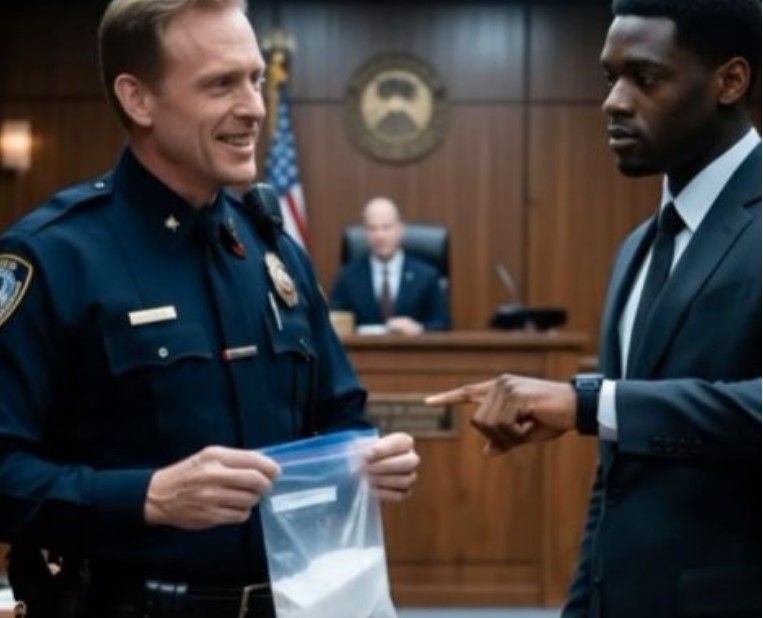In a city where justice often seemed one-sided, Detective Miller had built a reputation that carried weight — but not the kind that inspired trust. He was known for his aggressive tactics, his questionable stops, and his unshakable confidence that his badge made him untouchable.
For years, complaints about his conduct had surfaced and vanished, leaving behind a trail of uneasy citizens and unanswered questions. But all of that changed the day he crossed paths with Jamal.

Jamal was a calm, composed man in his early thirties — a cyber security expert with a reputation for integrity. He lived quietly, worked hard, and believed in doing things by the book. One evening, as he drove home from work, flashing red and blue lights lit up behind him. He sighed, already knowing the routine.
The officer claimed his tail light was out, but Jamal had just had his car serviced. Still, he pulled over politely and waited.
Detective Miller approached with his usual swagger, clipboard in hand. “License and registration,” he said curtly. Jamal handed them over without a word. What he didn’t know was that Miller had already decided how this stop would end — and it wasn’t with a warning. As Jamal kept his hands visible on the steering wheel, Miller subtly slipped a small bag beneath the passenger seat.
To anyone watching, it looked like a standard inspection. To Miller, it was his usual tactic — one he believed would never be traced back to him.
Moments later, Miller held up the planted bag. “Well, well,” he muttered. “Looks like we’ve got a problem here.” He arrested Jamal on the spot.
At the precinct, under bright fluorescent lights, Miller smirked across the table. “You’re going to break,” he said confidently. “Guys like you always do.”
But Jamal didn’t break. He didn’t even raise his voice. Instead, he leaned back in his chair and said calmly, “Detective, are you sure you want to do this?”
Unbeknownst to Miller, Jamal’s smartwatch had automatically activated the moment the police lights flashed. Synced with his company’s emergency response system, it began recording audio and transmitting GPS data. A live feed of the traffic stop had already been sent to his company’s legal department — along with copies of the footage from Jamal’s in-car cameras. Within minutes, his attorney had alerted a federal officer investigating local police misconduct.
While Miller typed up his report, the door to the interrogation room opened. Jamal’s lawyer and the federal agent walked in. “Detective,” the agent said, “we’d like to see the dash cam footage from your patrol car.”
Miller hesitated. The agent’s expression didn’t change. “Because we already have other recordings of the stop,” he added.
Jamal reached into his briefcase and placed a flash drive on the table. “My car records everything,” he said simply. “Front, back, and interior. You turned off your camera, but I didn’t turn off mine.”
The agent plugged in the drive. The room fell silent as the footage played — showing Miller’s every move, from the moment he approached the car to the instant he planted the bag. There was no denying it. The evidence was clear, timestamped, and verified by multiple sources.
By morning, the story had spread across the city: “Officer Caught on Camera Fabricating Evidence — Investigation Underway.” Detective Miller was suspended pending charges for misconduct. His once-untouchable reputation shattered in a single night.
As for Jamal, he walked out of the precinct a free man, his calm dignity untouched. When asked by reporters how he had stayed so composed, he replied, “Truth doesn’t need to shout — it just needs to be seen.”
His story quickly became a symbol of how technology and integrity could expose injustice and protect the innocent. It wasn’t vengeance that drove him — it was a belief that accountability could exist, even in a system that had failed too many times before.
Jamal’s quiet courage reminded everyone that real power isn’t in force or fear, but in truth, clarity, and the willingness to stand firm when it matters most.



